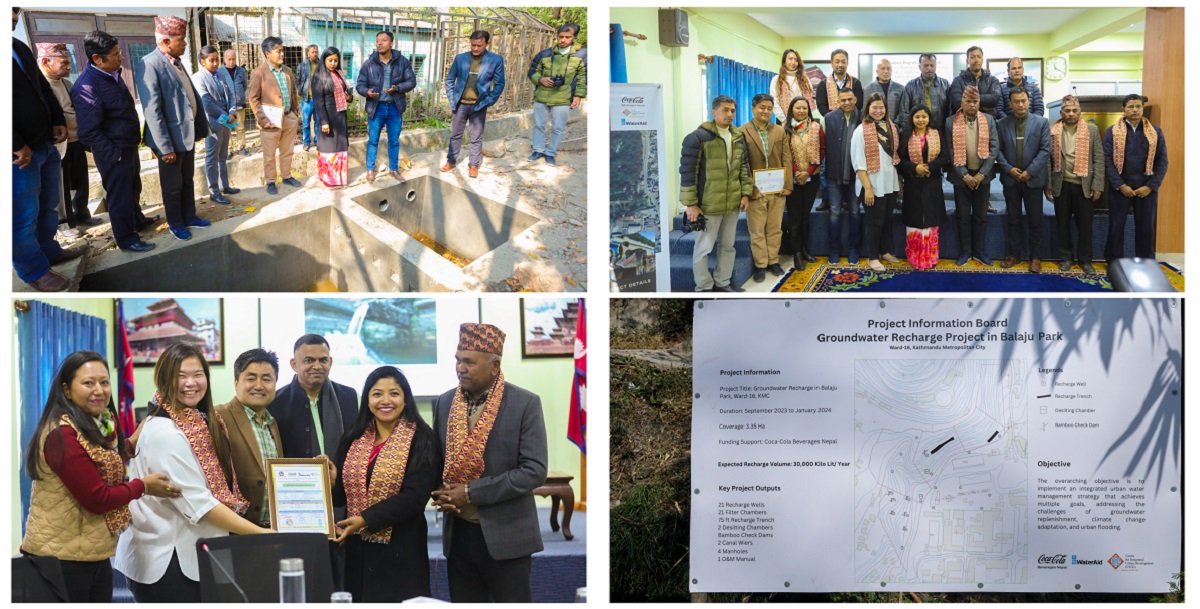
Kathmandu; Coca-Cola Beverages Nepal, Centre for Integrated Urban Development (CIUD) and Water Aid Nepal (WAN) jointly handed over the groundwater water recharge system, which was installed within the premises of Balaju Park in ward no. 16 of the Kathmandu Metropolitan City (KMC), to the deputy mayor of the KMC, Sunita Dangol, On January 19. The project commenced on October of 2023 officially and concluded on 19th January.
As per CIUD The recharge system consists of 21 filter chambers, 21 recharge wells, two distilling chambers, recharge trenches of 75 feet and seven bamboo check dams. These recharge structures are the key outputs of the project titled 'Groundwater Recharge in Balaju Park Area in the Kathmandu Metropolitan City: Addressing Increased Urban Water Demand' which was implemented by CIUD, in financial support from Bottlers Nepal Terai Limited (BNTL), and in technical support from WAN. It has been estimated that the system will help in recharging 30,000 kilo liter of water per annum thereby enhancing the water table of shallow groundwater of the area.

The key objective of the project was to maintain the water table of the park area thereby rejuvenating the discharge of the stone spouts, the famous Baish Dhara and the community wells and spring sources. It has been anticipated that this project not only helps in maintaining the groundwater table of the peripheral areas of the project site, but also make the communities aware and local authorities accountable for such initiatives which is necessary to cope with acute water shortage due to the rapid urbanization and the climate change impact.
In the program, deputy mayor Dangol expressed her impression on such initiative and committed her support and coordination from the KMC in promoting public-private partnership in promoting more similar groundwater recharge intervention in coming days as the artificial groundwater recharge is vital for the cities like Kathmandu where groundwater extraction is high, but the natural replenishment is low due to the sealing of building and road construction in the natural recharge zones.

Groundwater is one of the major sources of drinking water for the residents of the Kathmandu valley since time immemorial. The stone spouts, wells and kuwas (spring water points) are the major water outlets which can be seen everywhere in the valley. However, from the last two decades, the excess groundwater extraction, haphazard building constructions and roads have made the significance depletion of the groundwater in the valley. The change in rainfall pattern, that is extensive rainfall in short duration, has also made some impacts in the natural process of groundwater recharging.